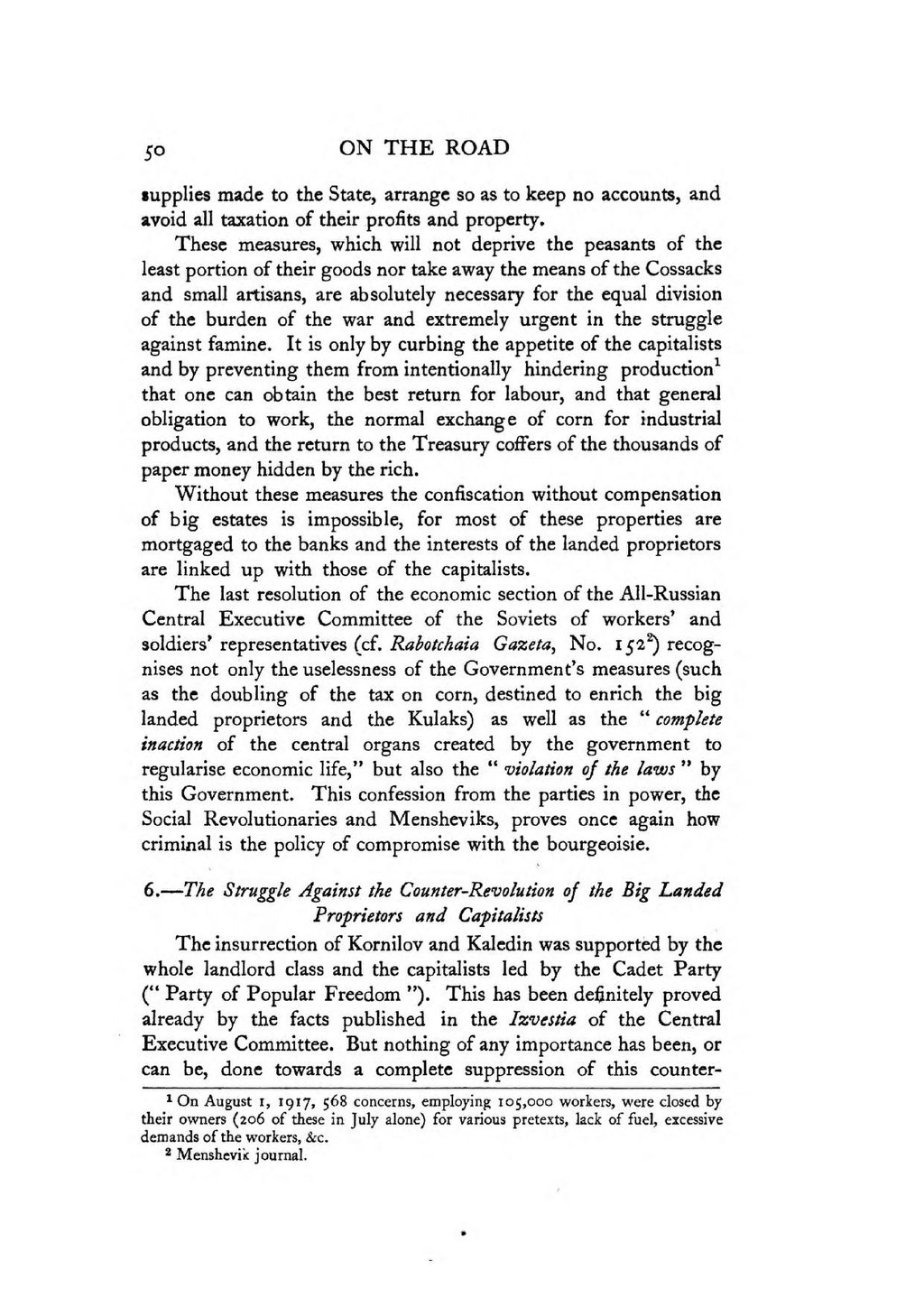supplies made to the State, arrange so as to keep no accounts, and avoid all taxation of their profits and property.
These measures, which will not deprive the peasants of the least portion of their goods nor take away the means of the Cossacks and small artisans, are absolutely necessary for the equal division of the burden of the war and extremely urgent in the struggle against famine. It is only by curbing the appetite of the capitalists and by preventing them from intentionally hindering production[1] that one can obtain the best return for labour, and that general obligation to work, the normal exchange of corn for indust products, and the return to the Treasury coffers of the thousands of paper money hidden by the rich.
Without these measures the confiscation without compensation of big estates is impossible, for most of these properties are mortgaged to the banks and the interests of the landed proprietors are linked up with those of the capitalists.
The last resolution of the economic section of the All-Russian Central Executive Committee of the Soviets of workers' and soldiers' representatives (cf. Rabotchaia Gazeta, No. 152[2]) recognises not only the uselessness of the Government's measures (such as the doubling of the tax on corn, destined to enrich the big landed proprietors and the Kulaks) as well as the "complete inaction of the central organs created by the government to regularise economic life," but also the "violation of the laws" by this Government. This confession from the parties in power, the Social Revolutionaries and Mensheviks, proves once again how criminal is the policy of compromise with the bourgeoisie.
6.—The Struggle Against the Counter-Revolution of the Big Landed Proprietors and Capitalists
The insurrection of Kornilov and Kaledin was supported by the whole landlord class and the capitalists led by the Cadet Party ("Party of Popular Freedom"). This has been definitely proved already by the facts published in the Izvestia of the Central Executive Committee. But nothing of any importance has been, or can be, done towards a complete suppression of this counter-
